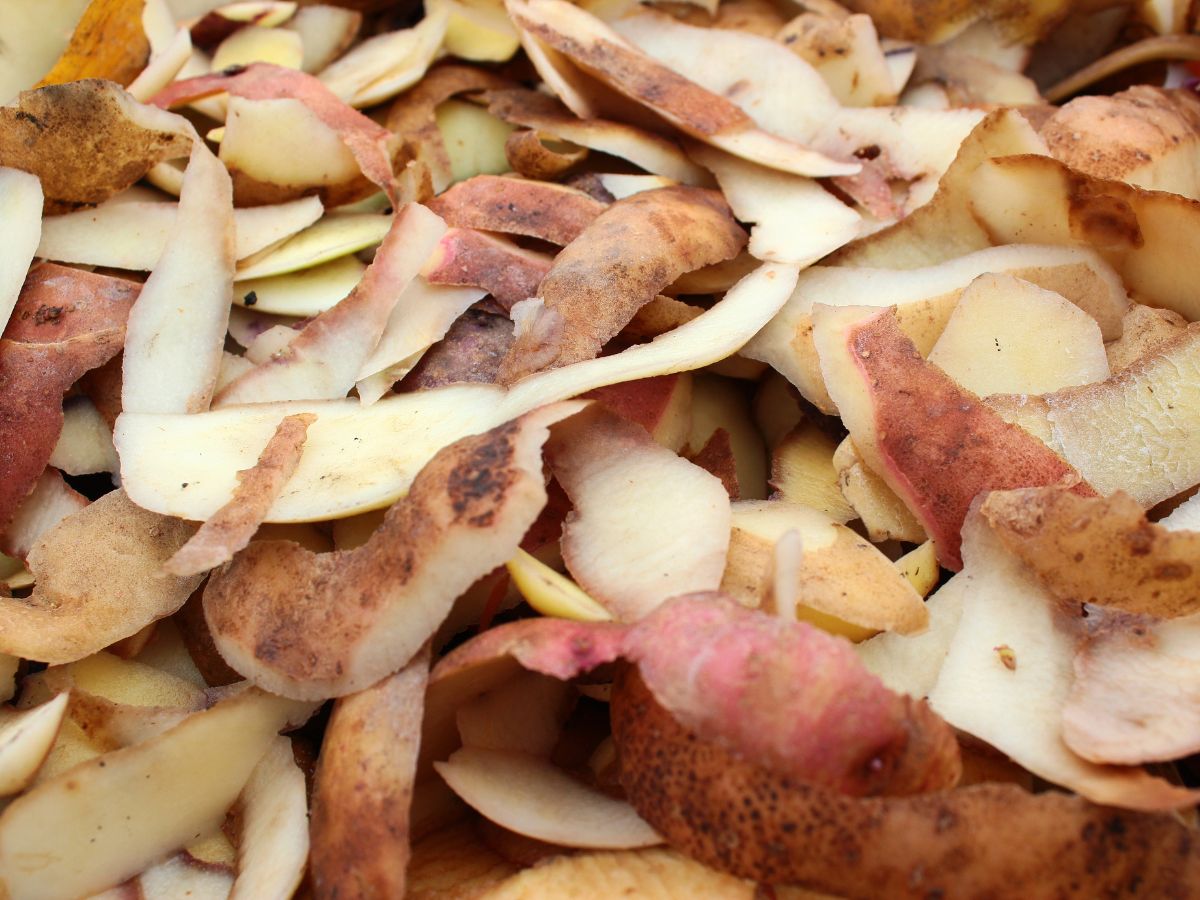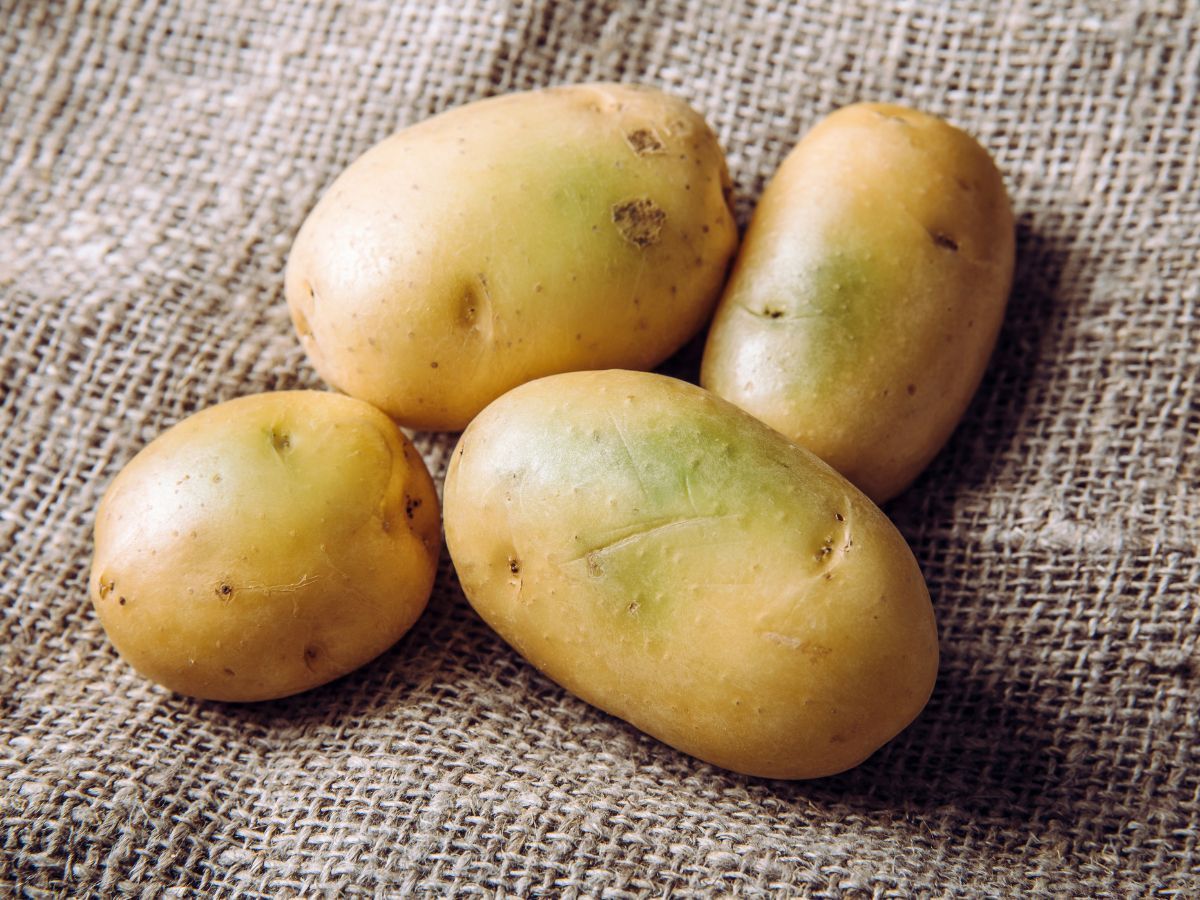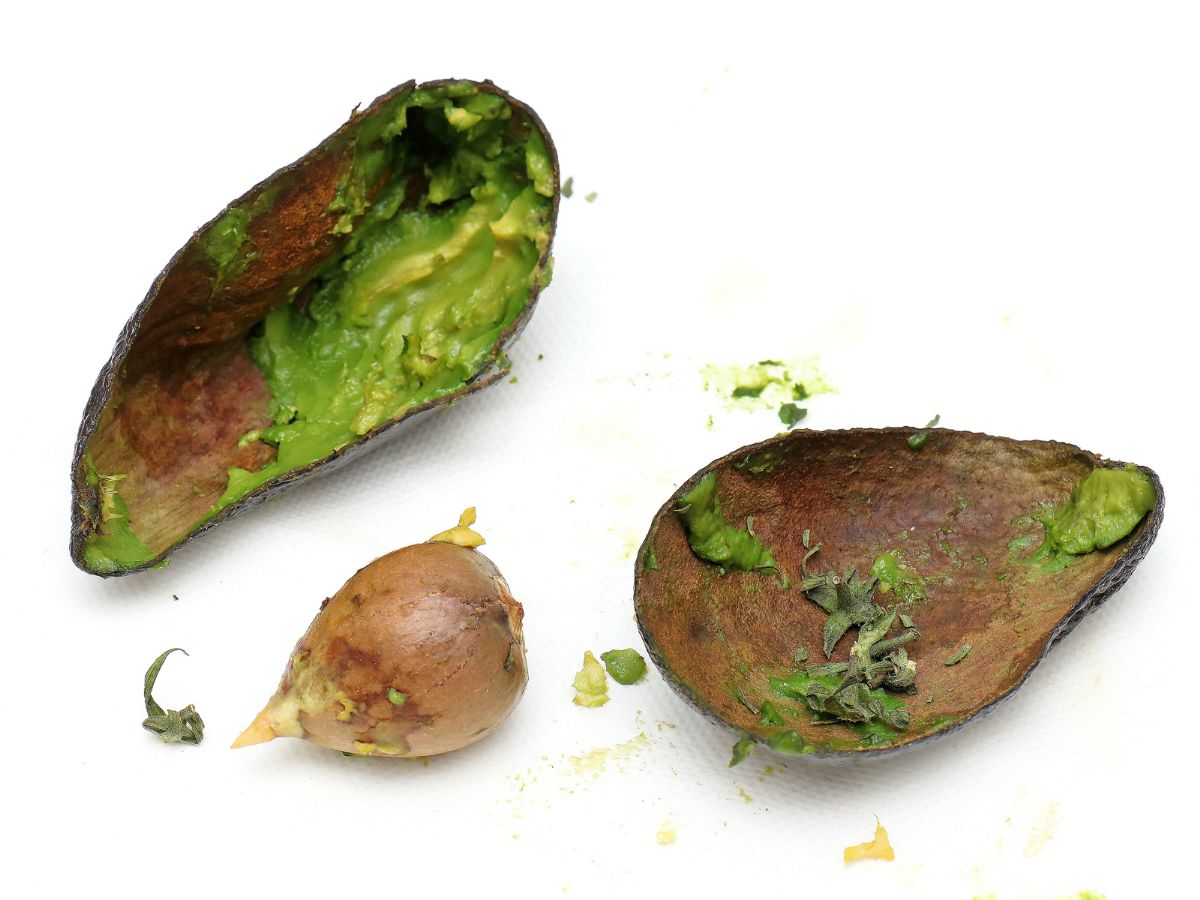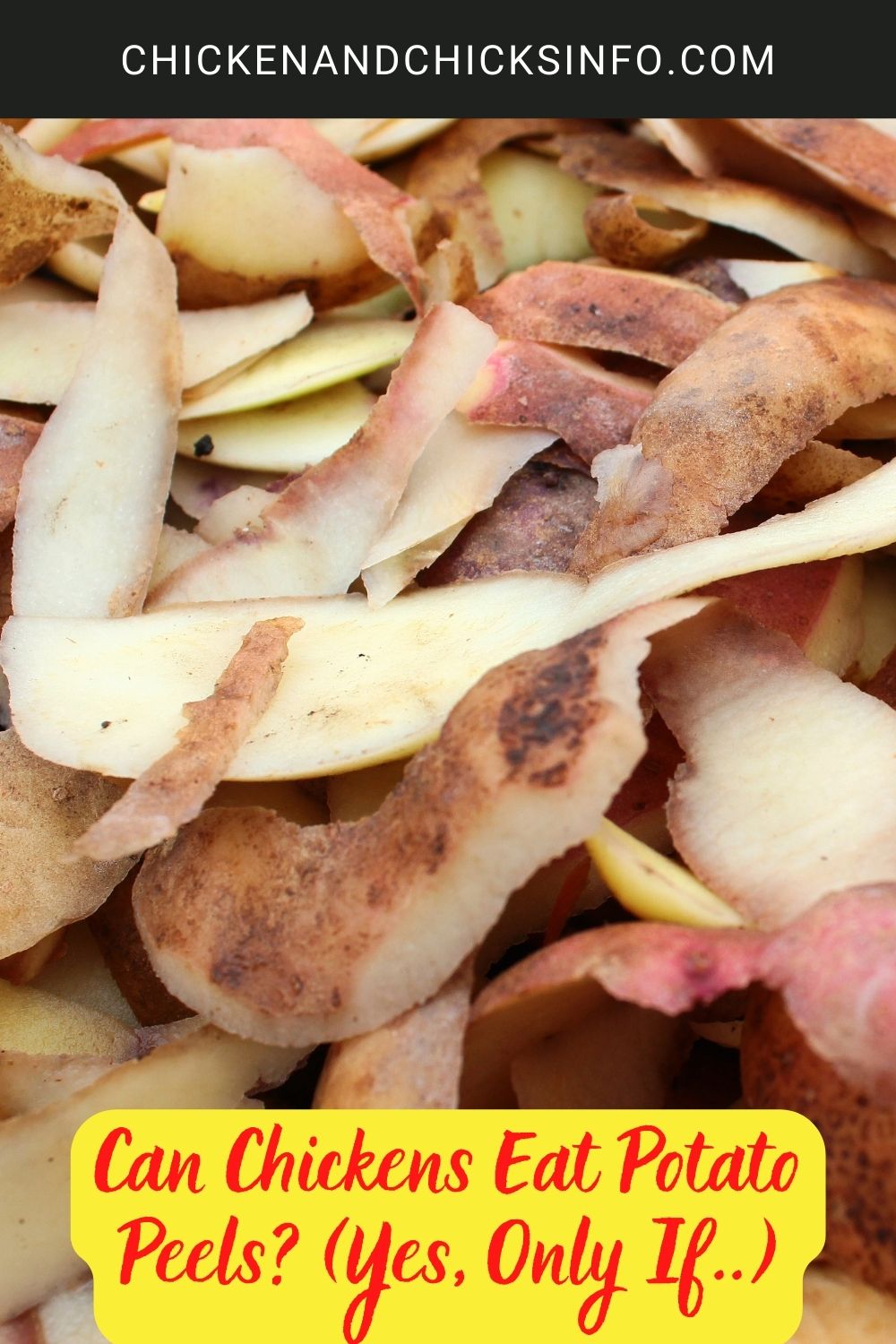
Chickens can eat potato peels, yes. There are some risks, however. If the peel is green then it likely contains a toxin called solanine. Solanine is potentially very harmful to chickens and should be avoided at all costs.
Jump to:
Is It Ok to Feed Your Chickens Potato Peels?
There are loads of discussions online about which table scraps, vegetables, and fruits are good for chickens, and which are not.
Potato skins and one of the most debated of all the scraps. This is because it's well known that potatoes are part of the nightshade family of vegetables, and they can contain harmful toxins.
So, when are potatoes and the peels harmful, and when are they safe?
As a general rule of thumb, if the potato is green that means it contains the toxin solanine. The most concentrated areas on the potato that go green are the peel, the eyes, and of course, the leaves are green.
This is why a lot of backyard flock owners say they’ll never give their chickens potato skins. They don’t want to risk the chance of their flock getting solanine poisoning.
I totally understand, I actually don’t give my chicks potato skins either. Even though I’d never get them green skins, I don’t see the point in injecting that tiny percentage chance.
What Is Solanine?

The word that keeps coming up in conversations about potatoes and potato peels is solanine.
I’d heard of this toxin, and I knew it was found in plants belonging to the nightshade family. I didn’t know just how toxic it was and exactly where it was found, so I did some research.
According to ScienceDirect, solanine is a steroidal alkaloid found in tomatoes, capsicum, eggplants, tobacco, and other nightshades as I already said.
It’s most commonly found in potatoes though. When potatoes are exposed to light, they turn green and produce solanine as a defense mechanism against being eaten by pests.
Very clever!
The problem is that this toxin is also harmful to us, and more so for chickens. Even in small amounts, it can cause gastrointestinal and neurological disorders.
If your chickens consume food containing solanine they can expect diarrhea, vomiting, nausea, stomach pains, headaches. In larger quantities, paralysis, fever, and there have been fatalities.
What Other Plants and Vegetables Are in the Nightshade Family?
Now you understand why plants in the nightshade family are so dangerous, you’re probably wondering what else you need to avoid giving your chickens.
Other nightshade plants you might come across include:
- Eggplant
- Capsicum (paprika and chili pepper)
- Tobacco
- Belladonna
- Tomatoes
I wrote a post here about whether or not you can feed tomatoes to chickens. The same rule applies as with potatoes; only green tomatoes and the leaves, stalks, and other green roughage is toxic.
Ripe red tomatoes are perfectly fine.
Related content - Can chickens eat bell peppers? (surprisingly, yes!)
What Other Foods Are Harmful or Toxic to Chickens?

While we’re on the topic, it doesn’t do any harm to point out some of the other table scraps that are more harmful than helpful to your chicks.
Here are some of the foods to avoid giving to your flock, along with green potatoes:
Dried or raw beans - These also contain a toxin that is harmful, and potentially fatal to chickens.
Avocado pits and skin - The flesh part of this fruit is fine, but the skin and pits contain a toxin called persin. This is very harmful to chickens, never give them the peel or seed of an avocado.
Chocolate and coffee - There are two toxic compounds found in both chocolate and coffee that are harmful to chickens; theobromine and caffeine. Here’s more information on why chickens can’t eat coffee grounds.
Junk food - A general term for greasy and fried foods, the kind of foods that are bad for us to eat is even worse for chickens.
Moldy foods - The mold that grows on food also spawns harmful toxins. You should never give your chooks food that’s past its best, and don’t let it sit outside in conditions that will accelerate mold growth.
As well as these foods that are particularly harmful, you should avoid giving your chickens salty foods, sugary treats, onions, and soft drinks to name a few.
In Summary - Can Chickens Eat Potato Peels?
I hope that’s cleared it up for you. Chickens can eat potato peels, as long as they do not have any green on them caused by exposure to the sun or because they’re too raw.
This is because green potatoes contain solanine. A toxin that is potentially very harmful to chickens, and to us too.
It’s worth noting that red and white potatoes both follow this rule. Sweet potatoes do not though. You can’t get solanine poisoning from sweet potatoes.
I know for a fact most chickens love potato peels (but what don’t they love?). But, it’s definitely worth considering the risks when giving them some.





